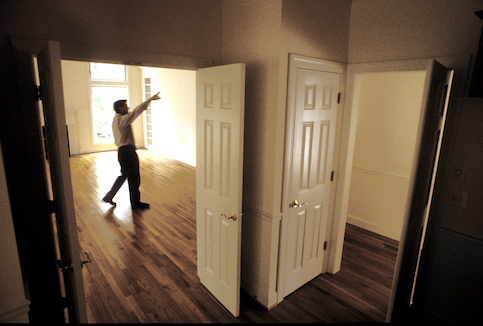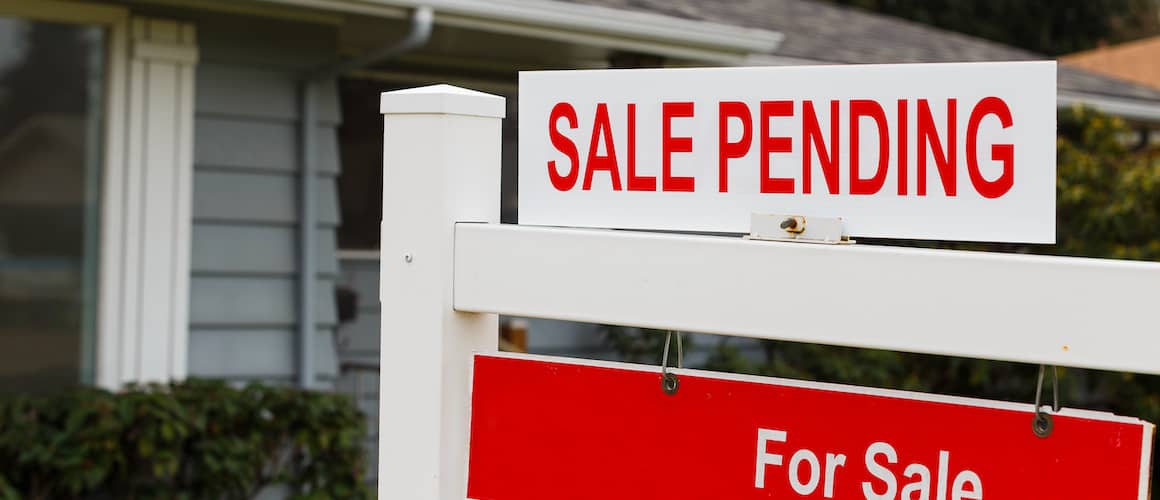What Does Fee Simple Ownership Mean And How Does It Affect Homeowners?

Buying real estate can come with risks, so it’s important to take many precautions when doing so. One thing to keep in mind is whether your new home has a clear title or an ownership history that could affect you after you buy. Fortunately, this doesn’t come up in most U.S. home sales, because most American homeowners own their properties in fee simple absolute.
Let’s take a closer look at what “fee simple” means in the context of real estate and the effect the ownership rights it provides has on those who buy or sell property.
What Does Fee Simple Ownership Mean?
Simply put, fee simple ownership is the highest possible ownership that one can have in real estate. However, there are different levels of ownership rights, even within the fee simple ownership status. Usually these are divided into two categories, fee simple absolute ownership and fee simple defeasible ownership.
See What You Qualify For
Home Purchase
Home Refinance
Tap Into Equity
What Is Fee Simple Absolute Ownership?
The best form of real property ownership is fee simple absolute, sometimes called a freehold. This means that the owner or owners can do whatever they like with the property, subject only to encumbrances like liens, or local guidelines, such as zoning, taxation or criminal laws. Some examples of zoning limits are operating a retail store from a house strictly zoned as residential, and failure to pay local property taxes.
Fee simple absolute properties can be sold, developed or bequeathed as the owner sees fit.
Fee simple absolute owners of real estate can convey properties to heirs, but conditions are put in place that ensure the original owner’s wishes are respected.
Be warned that title searches from a title insurance company won’t necessarily protect the buyer from future claims by the estate or other heirs.
What Is Fee Simple Defeasible Ownership?
A fee simple defeasible ownership is where ownership is dependent on specific conditions, and the contract is written with conveyance to show intent to transfer the property. If these specific conditions are not met, the property may be returned to the grantor. Fee simple defeasible ownership can take different forms.
Fee Simple Determinable Ownership
Fee simple determinable ownership is similar to fee simple defeasible ownership, but the ownership interest automatically ends if the specific conditions laid out are not met, and the property immediately reverts back to the grantor.
Fee Simple Ownership Subject To Condition Subsequent
This is similar to fee simple ownership, but it has a condition attached and is followed by a right of entry. For example, if someone leaves their home to an eldest child based on a specific condition and that condition isn’t met, has a right to take the property back. If they do nothing, the property stays with the current owner.
As an example, an owner might use this form of ownership if they wanted to give away the land subject to the building of a library. If the library isn’t subsequently built, the owner has a right to take the land back, but they need to take action to do so.
Fee Simple Ownership Subject To Executory Limitation
Unlike fee simple ownership subject to condition subsequent, if the original person granted the land under fee simple ownership subject to executory limitation doesn’t meet the conditions established when they were granted the land, their ownership interest can be automatically granted to a third party.
Let’s go back to the library example. If the land was donated and the library wasn’t built, the grantor could then use this to put in a condition that in such a case, the land goes back to other named heirs.
Fee Simple And Life Estates
While not technically a form of fee simple ownership in itself, a fee simple owner may create what’s called a life estate in their ownership interest.
Anyone who owns a property in fee simple can grant a life estate to give the property to someone else upon their passing. They can’t will the property to anyone else once the life estate is in place.
The fact that the owner who granted the life estate retains full rights in the property until they pass can create some interesting situations. For example, they can still sell the property. However, the buyer only has ownership rights in the property up until the passing of the seller. After that, ownership would revert to the person mentioned in the life estate.
Defeasible fee simple and life estates could give rise to claims of property ownership today. However, it’s important to note that these are relatively unusual cases of property ownership, and they can get very complicated and messy. It’s best to speak to a real estate attorney immediately if any of these ownership types affect a property you’re interested in buying.
See What You Qualify For
You can get a real, customizable mortgage solution based on your unique financial situation.
Fee Simple And Encumbrances: Other Limits On Fee Simple Ownership
Fee simple homeowners may encounter limits on their ownership including encumbrances in the form of encroachments, liens, easements and deed restrictions. Some of these encumbrances can have an effect on the fee simple rights of a homeowner. Encumbrances appear in title searches, so it’s imperative to make sure the title is clean, especially if you’re buying or selling a house.
Encroachment
An encroachment is a claim against a property that’s made by someone who isn’t the property’s owner. For example, if a fee simple estate owner has a neighbor who has built a structure or put in a landscaping feature that goes over their property line, they are having their ownership rights encroached upon and are being prevented from having complete control over their own property.
Liens
A lien is a legal claim for the right to repossess a property due to non-payment of a debt. Properties encumbered by liens will only be in that state until the debt is paid in full. Liens can be imposed for non-payment of a mortgage, a failure to pay for improvements to the property (a mechanic’s lien) or taxes (a tax lien). And, in certain circumstances, a homeowners association (HOA) may place a lien on your property if you fail to pay dues or follow its rules.
Easements
Easements are rights of land use that are granted to third parties like neighbors or local governments. These may allow access to parts of a property but shouldn’t interfere with your ownership. However, they should be taken into consideration if you plan to buy, sell or transfer ownership of the property.
Deed Restrictions
If you live in a deed-restricted community, there may be limits to your ability to alter your property and you may need to get permission from an HOA before you sell or rent the property.
What Is Leasehold Vs. Fee Simple Ownership?
When it comes to comparing fee simple and leasehold ownership, there are several key distinctions for homeowners to keep in mind.
Leasehold ownership occurs when a landowner enters into an agreement called a ground lease with a lessee. Leaseholds give lessees the right to occupy land, subject to the terms of the lease. The lease becomes an asset of the lessee or tenant, especially in long-term lease situations, but will never create an ownership in the property. Owners or landlords may limit uses of the property in a lease. For example, landlords can restrict pet ownership by tenants.
Condos, townhouses or co-ops – all common in large cities like New York City – are different from single-family houses, which are almost always owned in fee simple. The land beneath these structures is generally not owned by the condo or townhouse owner.
Fee Simple FAQs
Here are some answers to the most commonly asked questions about fee simple ownership.
What’s the difference between fee simple and fee simple absolute properties?
Sometimes the terms “fee simple” and “fee simple absolute” are used interchangeably, but be aware that legally, there can be a big difference between them. Fee simple absolute gives you rights to use a property for all time, without any conditions. The other forms of fee simple are all defeasible, meaning property can flow back to the grantor or even someone else based on whether conditions have been met.
Where does the term fee simple come from?
The concept is based on old English law. The word “fee” is derived from the word “fief,” meaning a feudal landholding. Feudal land tenures existed in England and involved a tenant and an overlord who were both engaged in a relationship that meant both sides had duties and services to provide to the property or the other person.
What is the difference between fee simple ownership and ground lease ownership?
While fee simple ownership means ownership over both the land and any property on it, ground lease ownership means that the owner owns the land, but another owner or investor can own any buildings or improvements that are on top of the land.
Ready to Find Out What You Qualify For?
See options that work for your unique financial situation.
The Bottom Line
If you’re a potential real estate investor looking to buy property, it’s important to remember the topics we covered today and beware of variations in state law. You should always make sure that the title is clear and reflects that the party selling the property owns it in fee simple absolute. It’s also important to understand that experienced property attorneys are crucial to advising in complicated real estate situations.
Ready to own property? .











